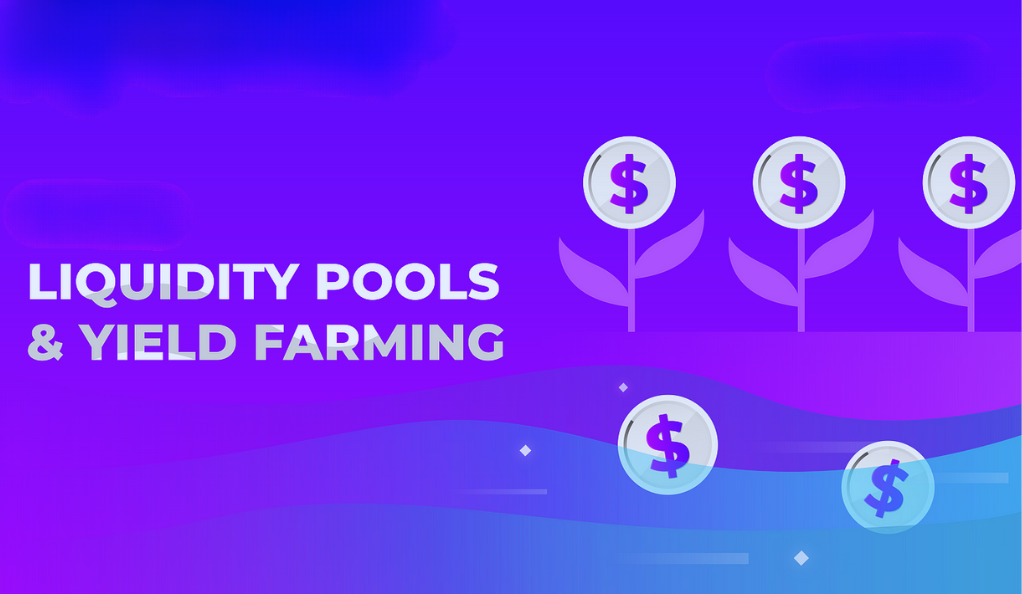Yield farming and liquidity pools are two interrelated concepts that have gained significant attention in the blockchain space. As decentralized finance (DeFi) continues to revolutionize the financial sector, understanding these terms becomes crucial for investors and enthusiasts. This article aims to provide a comprehensive overview of yield farming and liquidity pools, shedding light on their significance and how they function within the blockchain ecosystem.

What is Yield Farming in Blockchain?
Yield farming, also known as liquidity mining, is a process where investors can earn interest or rewards by providing liquidity to decentralized platforms on the blockchain. In traditional finance, individuals would deposit funds in a bank and earn interest over a set period. Similarly, in the blockchain world, yield farmers deposit their digital assets into liquidity pools and receive returns based on the pool’s overall performance.
The concept of yield farming revolves around decentralized exchanges (DEXs) and yield aggregators. DEXs enable users to trade cryptocurrencies directly with each other, eliminating the need for intermediaries. Yield aggregators, on the other hand, act as platforms that optimize returns by automatically shifting assets between different liquidity pools. Farmers can choose to participate in various yield farming strategies, such as staking tokens, providing liquidity to lending platforms, or even taking part in yield-generating decentralized applications (dApps).
Exploring the Concept of Liquidity Pools
Liquidity pools are the backbone of yield farming. They are a smart contract-powered mechanism that allows users to pool their funds together, providing liquidity for decentralized exchanges and other DeFi platforms. These pools consist of various digital assets, which are locked into the smart contract and used to facilitate trading, lending, or other financial activities within the ecosystem. In return for their liquidity provision, users are rewarded with fees or tokens from the platform.
The beauty of liquidity pools lies in their decentralized nature, as they eliminate the need for traditional order books and rely on the liquidity provided by users. This allows for continuous market-making and ensures that trades can be executed without relying on buyers and sellers being present simultaneously. Additionally, liquidity pools enhance price stability and reduce the impact of large buy or sell orders on the market.
Yield farming and liquidity pools have revolutionized the blockchain ecosystem, providing investors with exciting opportunities to earn passive income and participate in decentralized finance. By understanding the concept of yield farming, individuals can make informed investment decisions and leverage the potential of DeFi platforms. Similarly, liquidity pools play a vital role in ensuring the seamless functioning of decentralized exchanges and other DeFi applications. As the blockchain industry continues to evolve, these concepts will undoubtedly shape the future of finance, fostering innovation and financial inclusion.
ChesWorkShop commits to presenting fair and reliable information on subjects including cryptocurrency, finance, trading, and stocks. However, we do not have the capacity to offer financial guidance, advocating instead for users to conduct their own diligent research.
